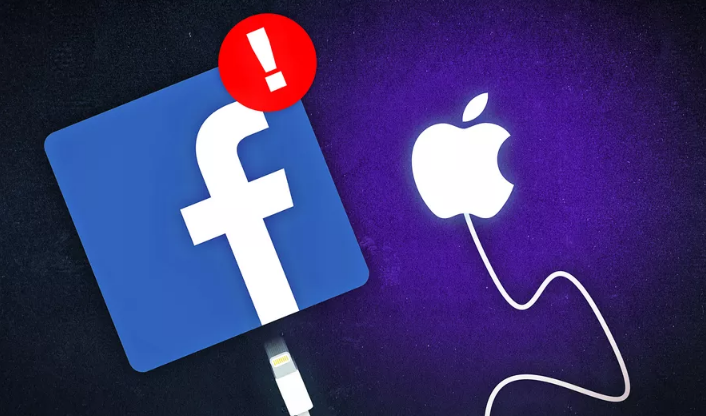Facebook wants to hear gaming companies’ concerns about Apple’s new mobile operating system. Apple’s iOS 14 update will limit the effectiveness of Facebook ads. Gaming companies reliant on Facebook ads may curb ad spending. This would include Google, Snap, and Twitter.
Related: Apple to Expand in Texas (Instead of China) – Add 10,000 Jobs to Build Mac Book Pro
Apple currently allows other developers’ apps on iPhones and iPads. The apps can show advertisers what a person is doing when they’re not in the app. That’s true unless the user has opted out of tracking in their device’s settings. Hint: Opt-out.
After the change
Come mid-September iPhones updated with Apple’s new iOS 14 operating system will change. They will start showing a pop-up box in apps. It will ask for a user’s permission to track activity. Advertisers expect many of Apple’s iPhone users to opt-out. How big a deal is this? There are around 1 billion of them. So, it is a very big deal.
Without tracking, Facebook’s ads lose some of their effectiveness. In turn sales for mobile gaming companies are likely to take a hit. This is one of Facebook’s five most lucrative spending categories. Gaming firms rely heavily on targeted ads. This is a mainstay in finding new players and keep existing ones spending.
Gaming companies are particularly reliant on reaching iPhone users. They spend more on average gaming than Android users. That’s according to app research firm Sensor Tower.
The change by Apple will likely cause gaming companies to spend less on app-install advertisements. That is an ad type asking people to download an app or game. In the meantime, a lot of people are panicking. They are trying to figure out how to effectively target Apple customers.
The Apple position
Facebook representatives have been meeting with gaming companies to ease their concerns. Facebook employees have been engaging an effort to get more information about the upcoming Apple update. A Facebook spokesperson refers to recent comments from its CFO, Dave Wehner.
In a July earnings call, Wehner said that Apple’s coming changes are “going to make it harder for app developers and others to grow using ads on Facebook and elsewhere.” Facebook is “still trying to understand what these changes will look like and how they will impact us and the rest of the industry…” The upcoming restrictions could cut into Facebook sales…
Apple has been reining in the ability of ad tech firms to track browsing habits across the web. CEO Tim Cook has made privacy a selling point of what makes Apple different. This is especially true compared to competitors Google and Facebook. Those companies generate most of their revenue by selling advertising. Their hook is based on user data.
Apple is competing for some of these advertising dollars. It is doing so by building up its own ad network through its App Store and News app. The upcoming iOS changes constitute a big clampdown by Apple.
It is limiting the ability of apps and advertisers to track users. This is being done by requiring developers to get explicit consent to track their phone’s ID. The tracking is done through a unique set of characters Apple creates for each device.
What’s at stake?
This is what’s known as the Identifier for Advertisers (IDFA). This Apple ID has become a valuable tracking tool for Facebook and its rivals. We are talking a $91 billion U.S. mobile advertising market. Say someone sees a Facebook ad on their iPhone and then buys it on a website. Facebook uses the phone’s ID to show the advertiser its ad effectiveness.
Tracking also helps Facebook’s advertisers target people. They help find and reach those most likely to buy their products or download their apps. Free-to-play games make their money off in-app purchases. They tailor campaigns using Facebook’s advertising tool. The campaigns target based on the likelihood someone will make a purchase.
Apple says it welcomes targeted advertising. However, it wants to give users the ability to opt in to those types of ads. If someone doesn’t want the tracking, Apple will tell the app’s developer. The developer needs to make sure their app complies. Apple could ban an app continuing to track users against their wishes. Apple restrictions on ad targeting are an opportunity for greater privacy on the web.
What to expect
Consumers have shown they’ll opt out of ad tracking if that choice is available. A report by Singular analyzes the number of Apple customers choosing to limit ad tracking. It finds opt out is steadily increasing. This is happening with Apple customers at a far higher rate than on Android. Just over 30% of iOS users in the U.S. already limit tracking. The figure is below 5% on Android.
Some advertisers believe they’ll be able to take the changes in stride. Under Apple’s current proposal, apps will have some ability to customize part of the pop-up message. That gives advertisers some hope of crafting a message to convince people to continue sharing their information. Apple restrictions on ad targeting are going to cause a ripple in the web.
